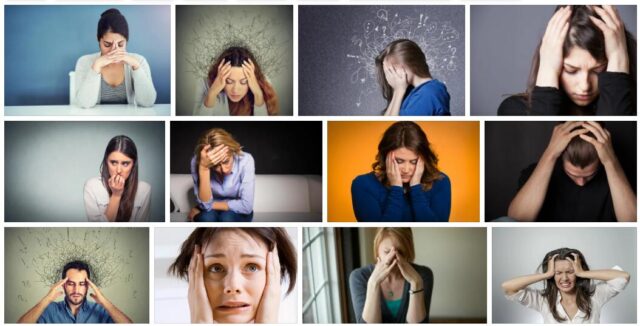The concept of anxiety has its origin in the Latin term anxietas. This is the condition of a person experiencing shock, restlessness, nervousness, or worry. For medicine, anxiety is the distressing state that can appear together with a neurosis or another type of disease and that does not allow the patient to relax and rest.
For example: “I feel great anxiety about tonight’s recital”, “Try to master your anxiety, that things can go wrong in that state of nervousness”, “Great anxiety about the semifinals match”.
It should be noted that anxiety is not always a pathology, but is a common emotion such as fear or happiness. Anxiety, in this sense, is necessary to survive certain risks since it puts the person on alert.
When an individual is in a state of anxiety, his powers of perception increase as there is a need for the body to increase the level of certain elements that, in the situation, are below normal.
The dopaminergic system is the one in charge of giving alerts to the organism of what it needs, releasing signals to the central nervous system. It does so when we are hungry, thirsty, or sleepy, and it leads us to seek all means to satisfy that need. Likewise, it is in charge of releasing adrenaline when we are facing situations that we must face. It is a chain consisting of: 1) Yellow alert, 2) Red alert and 3) achievement of the objective; When the chain is broken, an atypical anxiety or stress situation occurs that can lead to resolution of the danger or succumb to fear. In other words, when this innate faculty of the individual becomes pathological, an anxiety disorder appears.
According to the World Health Organization (WHO), these disorders include panic attacks, obsessive-compulsive disorder (OCD), and phobias. To overcome anxiety disorders, professionals can supply anti-anxiety remedies or suggest psychological therapies.
Anxiety as a disorder
The responses that anxiety generates in a person are: flee or fight. In ancient times these mechanisms arose when having to face the difficulties that life in nature presented to them; Despite the fact that these problems no longer exist today, new ones have emerged that generate stress and anxiety in people. The danger is sometimes real, but other times it is conditioned by the experiences that each individual has previously had to face; The latter occurs, for example, in anxiety disorders. Fear works as a defense mechanism, but if the response it leads to is harmful to the individual, it is essential to dare to face it.
When fear comes to generate paralysis in the actions of the individual is called phobia, it is a sudden reaction where the subject loses control of the situation, in those situations the person tries to flee from the conflict. Some phobias can be: acrophobias, claustrophobia or agarophobia.
A person who suffers from a phobia, witnesses the appearance of the disease when they must face that feared situation and this, generally, instigates the subject to flee (symptoms of anxiety and avoidance behaviors). In obsessive compulsive disorders, its appearance is perceived when the individual struggles to impose himself against his obsessive impulses; generally the reaction is also to run away from the conflict (self-injuring or taking a harmful attitude to oneself or to the environment). Another circumstance in which this dreaded reaction occurs, is next to the separation anxiety disorders, when the separation of the father figures and the subsequent instability have been experienced.
According to studies carried out by psychiatrists, a certain degree of anxiety is good, it collaborates positively in the formation of character, it allows us to expand our knowledge and reinforce creativity, since the experiences that have marked us allow us to have a notion of what we should protect ourselves from. and discern what things cannot harm us.
There are many ways to treat anxiety, some specialists are inclined to reduce it to fear of the future, to the possibilities that we are not aware of, “what if…?”, And they assure that the way to resolve it is by recoding these thoughts that help the individual only live in the present. Anxiety exists because people live in the future and forget about the present, which is the only real thing, and the moment the patient manages to return to his existence, the anxiety disappears.
